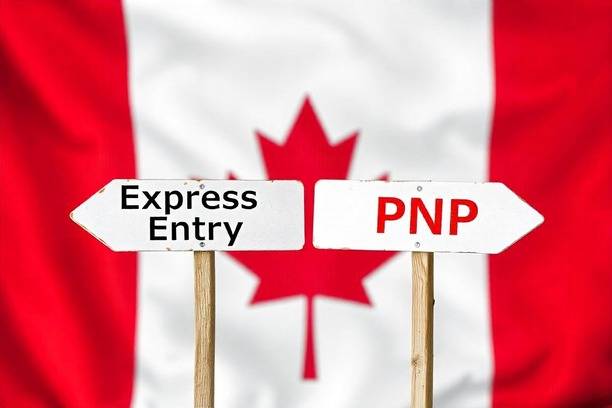

Canada is one of the top destinations for immigrants worldwide, offering various pathways to permanent residency. Two of the most popular immigration programs are Express Entry and the Provincial Nominee Program (PNP). While both can lead to permanent residency, they have different processes, requirements, and benefits. If you're considering immigrating to Canada, understanding these two options will help you choose the best pathway based on your profile and goals.
Express Entry is a points-based immigration system that manages applications for three federal economic immigration programs:
Candidates create an online profile and are given a Comprehensive Ranking System (CRS) score based on factors like age, education, work experience, language skills, and adaptability. The highest-ranking candidates receive an Invitation to Apply (ITA) for permanent residency through regular draws.
The Provincial Nominee Program (PNP) allows Canadian provinces and territories to select immigrants based on their specific labor market needs. Each province has its own immigration streams designed to attract skilled workers, entrepreneurs, and graduates who can contribute to the local economy.
PNP applicants may apply in two ways:
| Feature | Express Entry | PNP |
| Processing Time | 6 months (after ITA) | 12 to 24 months |
| CRS Score Requirement | Higher scores needed | PNP adds 600 points, increasing chances |
| Job Offer Requirement | Not always required | Some PNPs require job offers |
| Provincial Selection | No province-specific selection | Candidates chosen by provinces |
| Application Process | Centralized, managed by IRCC | Required provincial and federal applications |
| Flexibility in Settlement | Can live anywhere in Canada | Must live in nominated province |
The best immigration pathway depends on your profile, CRS score, job prospects, and willingness to settle in a specific province. Here’s how to decide:
✔️ You have a high CRS score (typically above 470).
✔️ You meet the criteria for FSWP, CEC, or FSTP.
✔️ You want faster processing (around six months after ITA).
✔️ You prefer freedom to live anywhere in Canada.
If you have strong education, work experience, language skills, and no provincial ties, Express Entry is often the best route.
✔️ Your CRS score is too low for Express Entry draws.
✔️ You have a job offer in a specific province.
✔️ You have work or study experience in a particular province.
✔️ You are willing to commit to living in the province that nominates you.
PNP is a great option for candidates struggling to get an ITA through Express Entry alone. The 600 extra CRS points from a PNP nomination almost guarantees an invitation in the next Express Entry draw.
Each province has its own PNP with different eligibility criteria. Here are some popular PNPs:
Yes! Many candidates apply for both to increase their chances. If you are in the Express Entry pool but have a low CRS score, applying for a PNP can boost your points. If you are nominated, you will get 600 extra points, securing your invitation for permanent residency.
Both Express Entry and PNP offer excellent opportunities to immigrate to Canada. If you have a high CRS score and want flexibility in choosing where to live, Express Entry is the best option. However, if your CRS score is low, or you have strong ties to a province, PNP is a great alternative.
If you're unsure which pathway is best for you, consider applying for Express Entry while exploring PNP options to maximize your chances of success.
In recent years, Canada has faced growing pressure to control immigration levels due to housing
Canada has become an increasingly attractive destination for remote workers seeking a high quality of
Canada is making significant changes to its work permit policies, directly affecting temporary residents seeking
Having an 'Identity Verified' badge or being 'Identity Verified' simply indicates that an individual has submitted information to complete our identity verification process or we have conducted internal verification using various authorized websites. While this process includes safeguards, it does not guarantee that the person is who they claim to be.
If you encounter any issues with this profile, please report them here. While all consultants who are verified have RCIC ID, we may not have the latest data in terms of their renewal/cancellation/discontinuation of their RCIC ID.
The "Verified Consultants" profiles are created using publicly available information, including data from the IRCC website, official consultant sites, other listing platforms, and social media. Immiperts.com is an independent platform, not affiliated with IRCC or any registered immigration consultants. To update, claim, or remove your profile, please contact us at [email protected].
╳